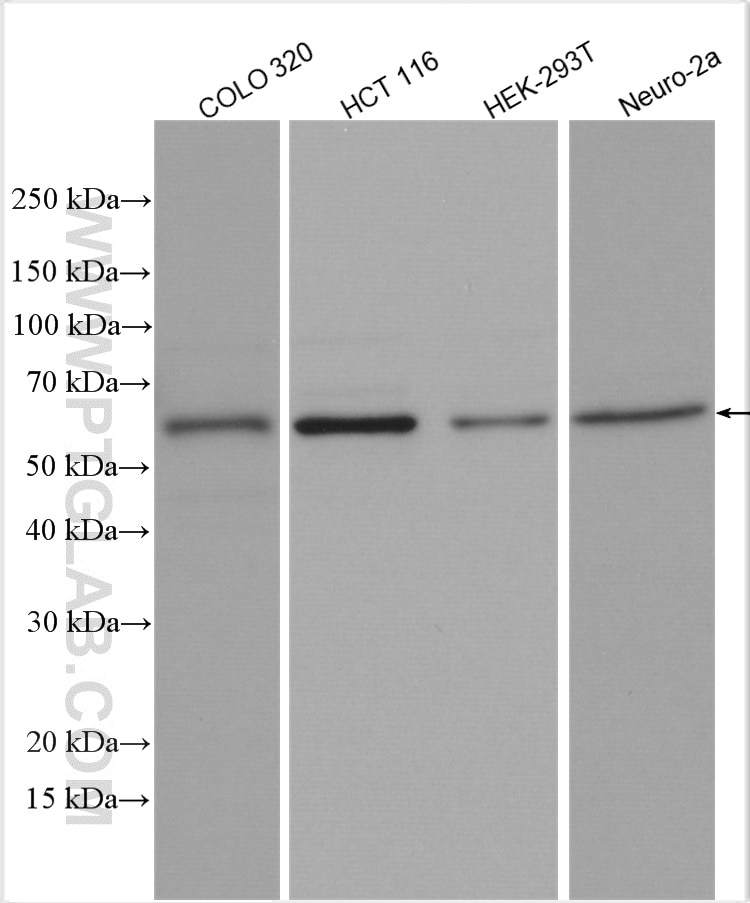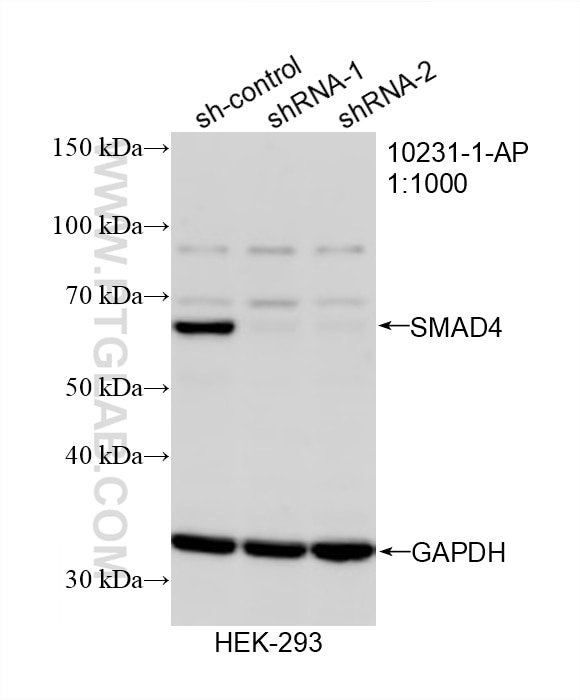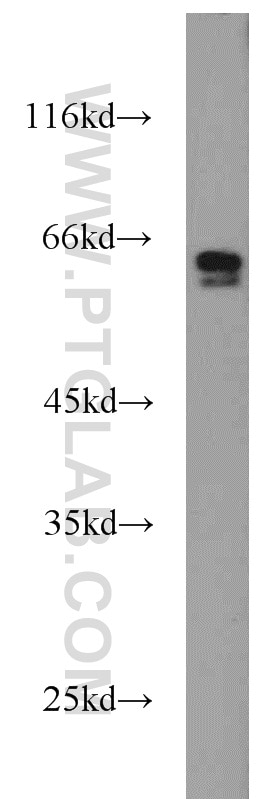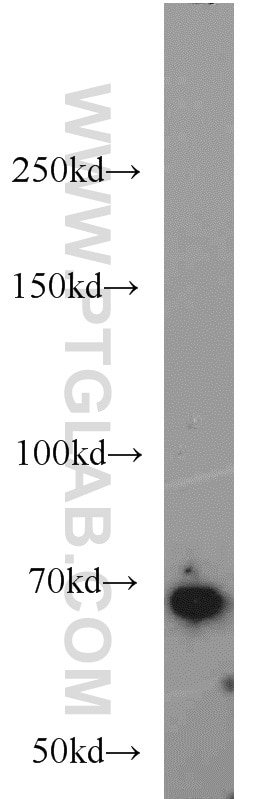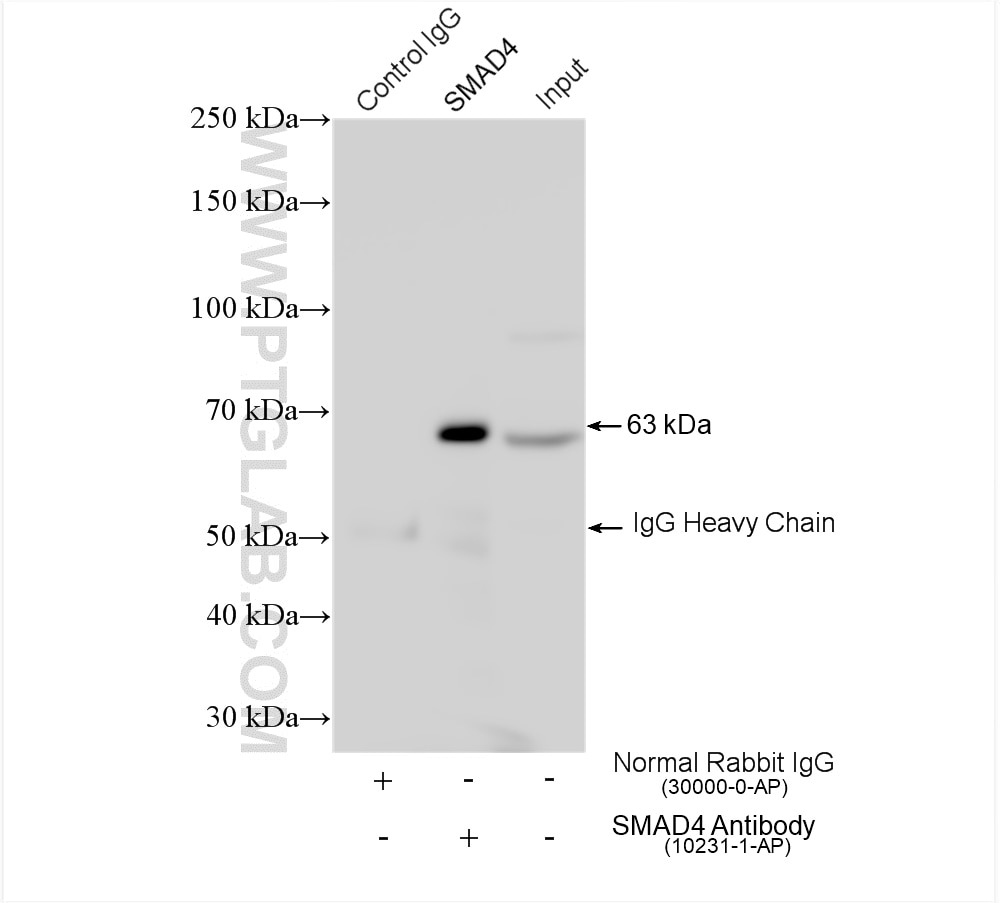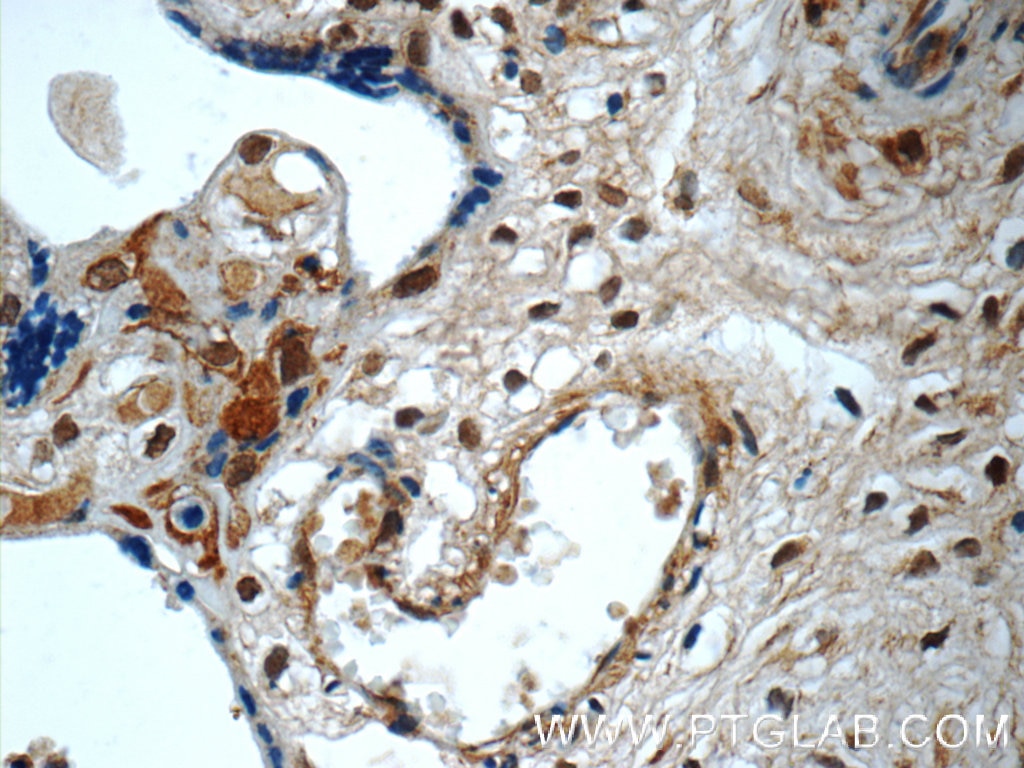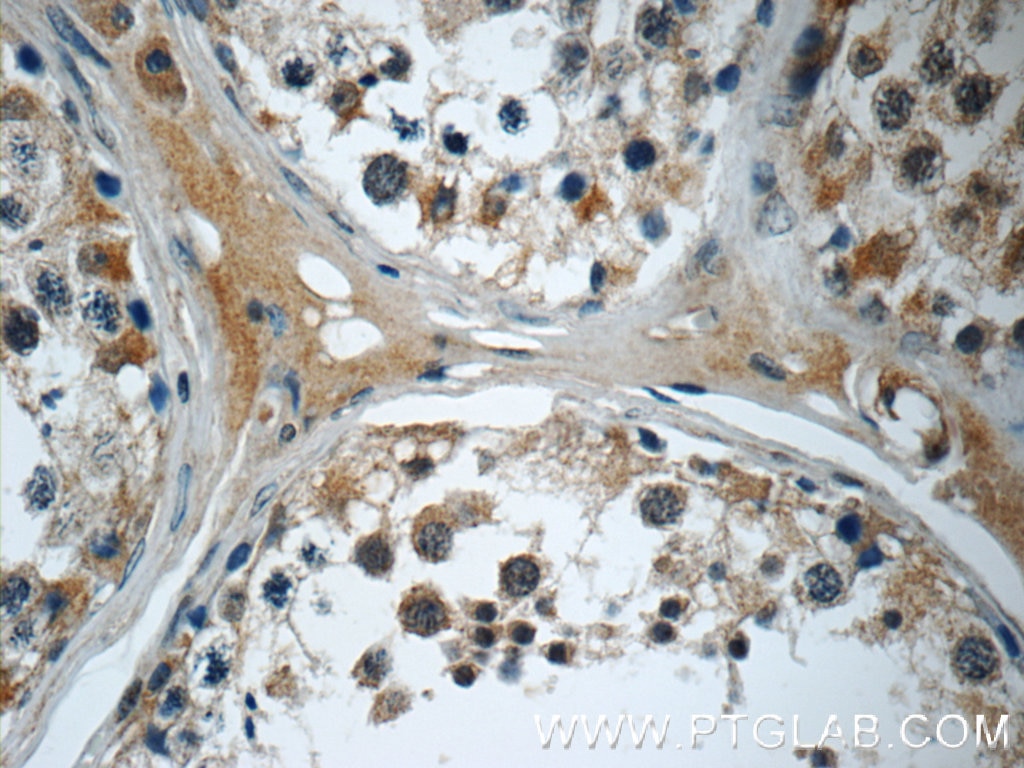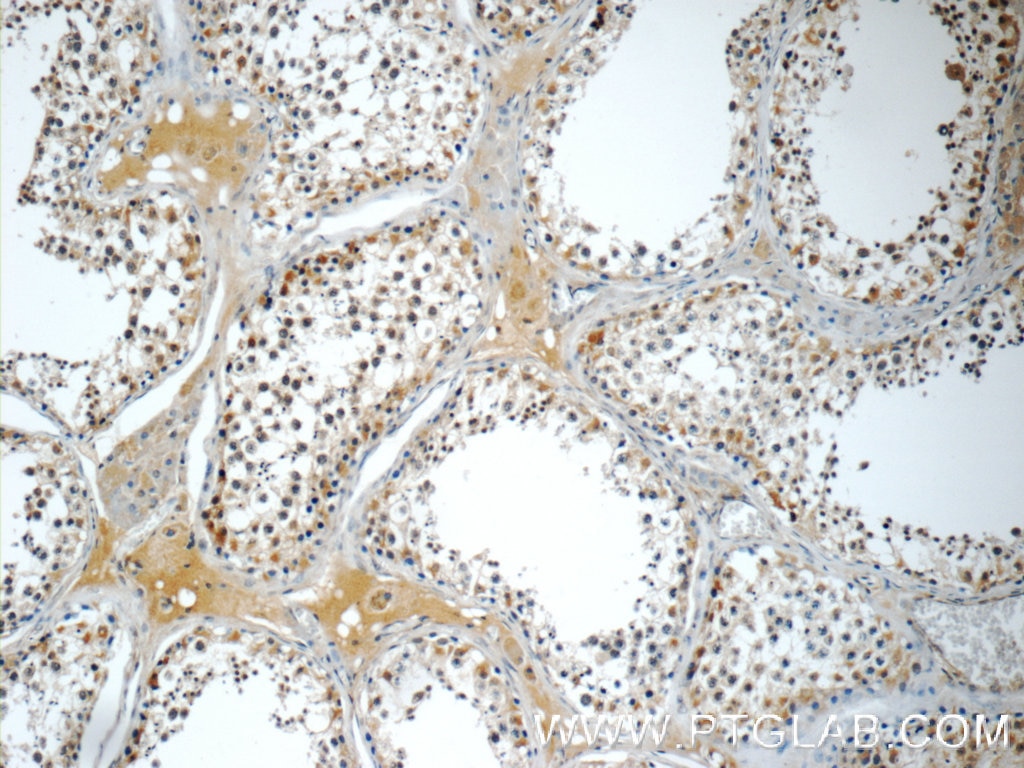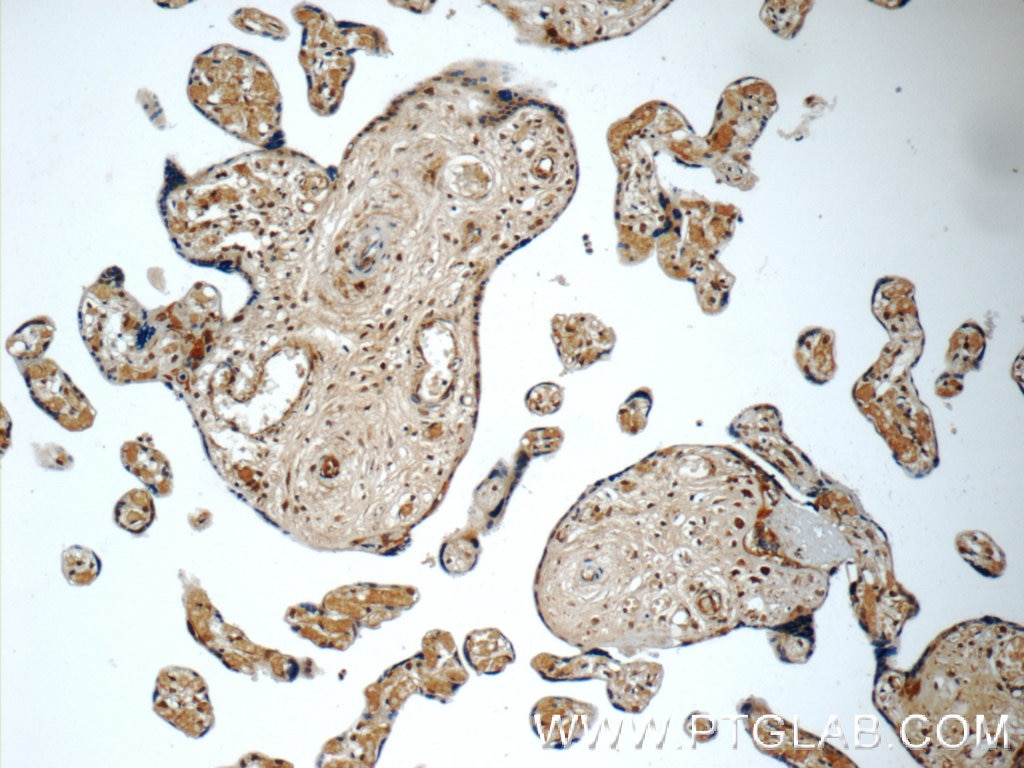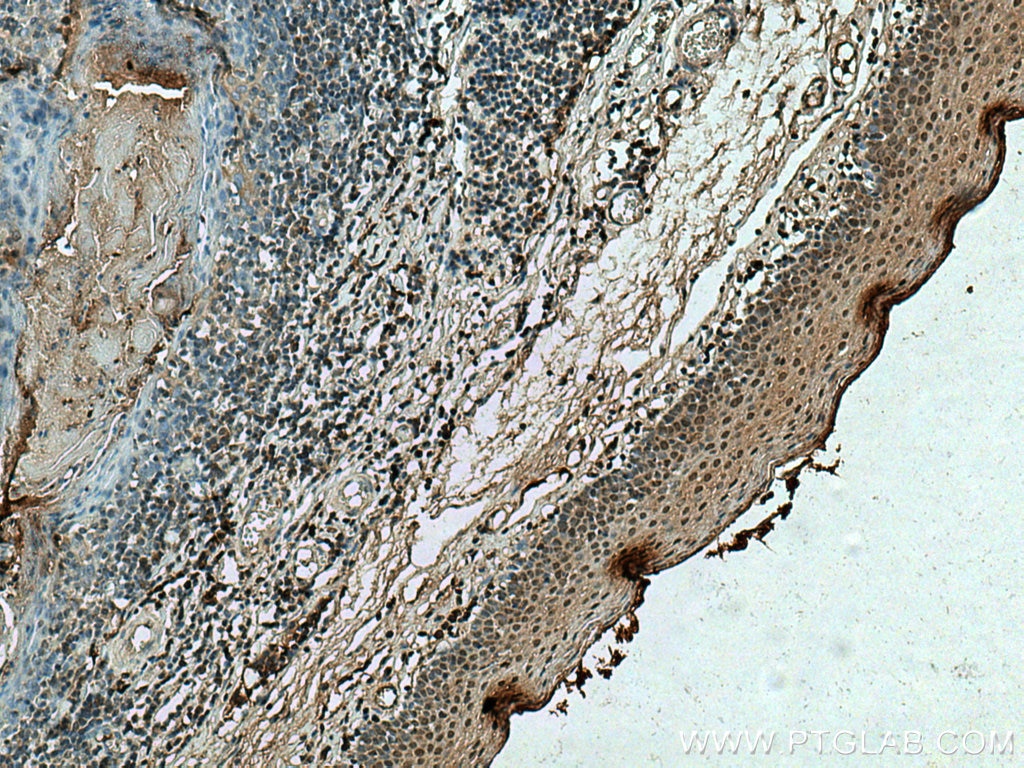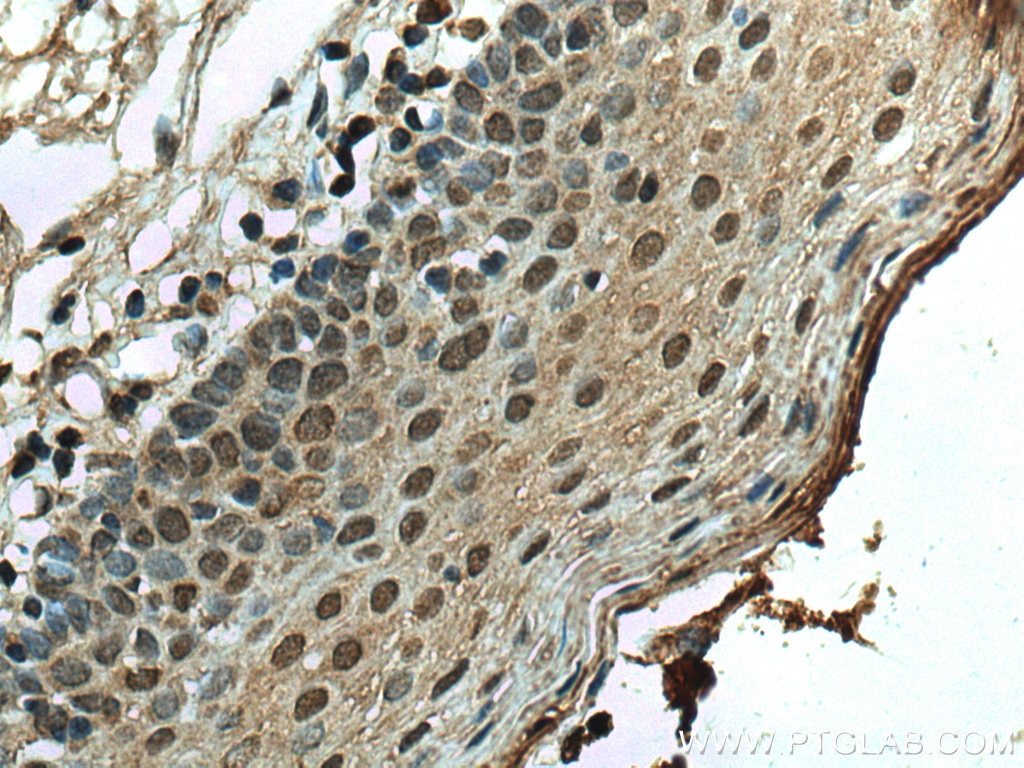- Phare
- Validé par KD/KO
Anticorps Polyclonal de lapin anti-SMAD4
SMAD4 Polyclonal Antibody for WB, IP, IHC, ELISA
Hôte / Isotype
Lapin / IgG
Réactivité testée
Humain, souris et plus (5)
Applications
WB, IHC, IP, CoIP, ChIP, ELISA, IF
Conjugaison
Non conjugué
N° de cat : 10231-1-AP
Synonymes
Galerie de données de validation
Applications testées
| Résultats positifs en WB | cellules COLO 320, cellules HCT 116, cellules HEK-293, cellules HEK-293T, cellules Neuro-2a, cellules NIH/3T3, tissu hépatique de souris |
| Résultats positifs en IP | cellules HeLa, |
| Résultats positifs en IHC | tissu placentaire humain, tissu d'amygdalite humain, tissu testiculaire humain il est suggéré de démasquer l'antigène avec un tampon de TE buffer pH 9.0; (*) À défaut, 'le démasquage de l'antigène peut être 'effectué avec un tampon citrate pH 6,0. |
Dilution recommandée
| Application | Dilution |
|---|---|
| Western Blot (WB) | WB : 1:500-1:2000 |
| Immunoprécipitation (IP) | IP : 0.5-4.0 ug for 1.0-3.0 mg of total protein lysate |
| Immunohistochimie (IHC) | IHC : 1:20-1:200 |
| It is recommended that this reagent should be titrated in each testing system to obtain optimal results. | |
| Sample-dependent, check data in validation data gallery | |
Applications publiées
| KD/KO | See 5 publications below |
| WB | See 76 publications below |
| IHC | See 10 publications below |
| IF | See 6 publications below |
| IP | See 3 publications below |
| CoIP | See 1 publications below |
| ChIP | See 3 publications below |
Informations sur le produit
10231-1-AP cible SMAD4 dans les applications de WB, IHC, IP, CoIP, ChIP, ELISA, IF et montre une réactivité avec des échantillons Humain, souris
| Réactivité | Humain, souris |
| Réactivité citée | rat, bovin, Chèvre, Humain, porc, souris, Hamster |
| Hôte / Isotype | Lapin / IgG |
| Clonalité | Polyclonal |
| Type | Anticorps |
| Immunogène | SMAD4 Protéine recombinante Ag0299 |
| Nom complet | SMAD family member 4 |
| Masse moléculaire calculée | 60 kDa |
| Poids moléculaire observé | 63-70 kDa |
| Numéro d’acquisition GenBank | BC002379 |
| Symbole du gène | SMAD4 |
| Identification du gène (NCBI) | 4089 |
| Conjugaison | Non conjugué |
| Forme | Liquide |
| Méthode de purification | Purification par affinité contre l'antigène |
| Tampon de stockage | PBS avec azoture de sodium à 0,02 % et glycérol à 50 % pH 7,3 |
| Conditions de stockage | Stocker à -20°C. Stable pendant un an après l'expédition. L'aliquotage n'est pas nécessaire pour le stockage à -20oC Les 20ul contiennent 0,1% de BSA. |
Informations générales
Mammalian homologs of the Drosophila Mad gene include Smad1, Smad2, Smad3, Smad4 (DPC4), Smad5, Smad6, Smad7 and Smad8. Smad1 and Smad5 are effectors of BMP2 and BMP4 function while Smad2 and Smad3 are involved in TGF and activin-mediated growth modulation. Smad4 has been shown to mediate all of the above activities through interaction with various Smad family members . Smad6 and Smad7 regulate the response to activin/ TGF signaling by interfering with TGF -mediated phosphorylation of other Smad family members. This antibody is a rabbit polyclonal antibody raised against an internal region of human SMAD4.
Protocole
| Product Specific Protocols | |
|---|---|
| WB protocol for SMAD4 antibody 10231-1-AP | Download protocol |
| IHC protocol for SMAD4 antibody 10231-1-AP | Download protocol |
| IP protocol for SMAD4 antibody 10231-1-AP | Download protocol |
| Standard Protocols | |
|---|---|
| Click here to view our Standard Protocols |
Publications
| Species | Application | Title |
|---|---|---|
Nat Commun KMT2A associates with PHF5A-PHF14-HMG20A-RAI1 subcomplex in pancreatic cancer stem cells and epigenetically regulates their characteristics | ||
Transl Res Deubiquitinase USP13 promotes extracellular matrix expression by stabilizing Smad4 in lung fibroblast cells.
| ||
Acta Pharmacol Sin Role of thrombospondin-1 in high-salt-induced mesenteric artery endothelial impairment in rats
| ||
EMBO Rep Mouse endothelial OTUD1 promotes angiotensin II-induced vascular remodeling by deubiquitinating SMAD3 | ||
Stem Cell Reports Gene Correction Reverses Ciliopathy and Photoreceptor Loss in iPSC-Derived Retinal Organoids from Retinitis Pigmentosa Patients. |
